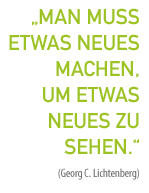Monat: Dezember 2014
The Evolution of Knowledge Management
By Mark Horton
Knowledge management has become an important and vital practice in the enterprise. As we have shifted from an industrial-based society to an information-based one, many jobs and tasks have been automated by machinery. The result is a smaller workforce and the advent of the knowledge worker – an employee whose job depends on tacit information that is rarely documented, limiting an organization’s ability to draw upon it in the future. Implementing solutions to collect and preserve tacit knowledge has become a high priority, allowing companies to create digital libraries of employee experiences and practices for future generations. The transfer of knowledge has evolved from the written word on rocks and paper to spoken stories heard live via telephones to digital, virtual, real-time communities on the web. Today’s #E2sday looks at the evolution of knowledge management, starting from our ancient foundation to today’s high tech solutions.

Aus Stärken aufbauen
„A person can perform only from strength.“
Peter Drucker
Wahrnehmungsfaktor
„Alle Einzelheiten werden bedeutungslos, wenn der Anblick des Musters verloren geht, das sie gemeinsam bilden.“
Michael Polanyi
Trial & Error
„Ich habe gesagt, dass es von der Amöbe zu Einstein nur ein Schritt ist. Beide gehen nach der Methode von Versuch und Irrtum vor. Die Amöbe muss den Irrtum hassen, denn sie stirbt, wenn sie sich irrt. Aber Einstein weiss, dass wir nur aus unseren Fehlern lernen können, und er scheut keine Anstrengung, neue Versuche zu unternehmen, um neue Irrtümer zu entdecken und sie aus unseren Theorien zu eliminieren. Der Schritt, den zwar Einstein, jedoch nicht die Amöbe tun kann, besteht darin, zu einer kritischen, selbstkritischen Haltung, einem kritischen Ansatz zu gelangen.“
Popper K. R. (1995):
Eine Welt der Propensitäten
Tübingen, Mohr
„Management ist die Umwandlung von Wissen in Nutzen.“
Fredmund Malik





![["Intelligence without ambition is a bird without wings." - Salvador Dali] Write to give your ideas and insights flight. #writing #inspiration #knowledge](https://i0.wp.com/media-cache-ak0.pinimg.com/736x/0d/0e/c7/0d0ec7a976a897d51dd7feeb10ee8cc1.jpg)